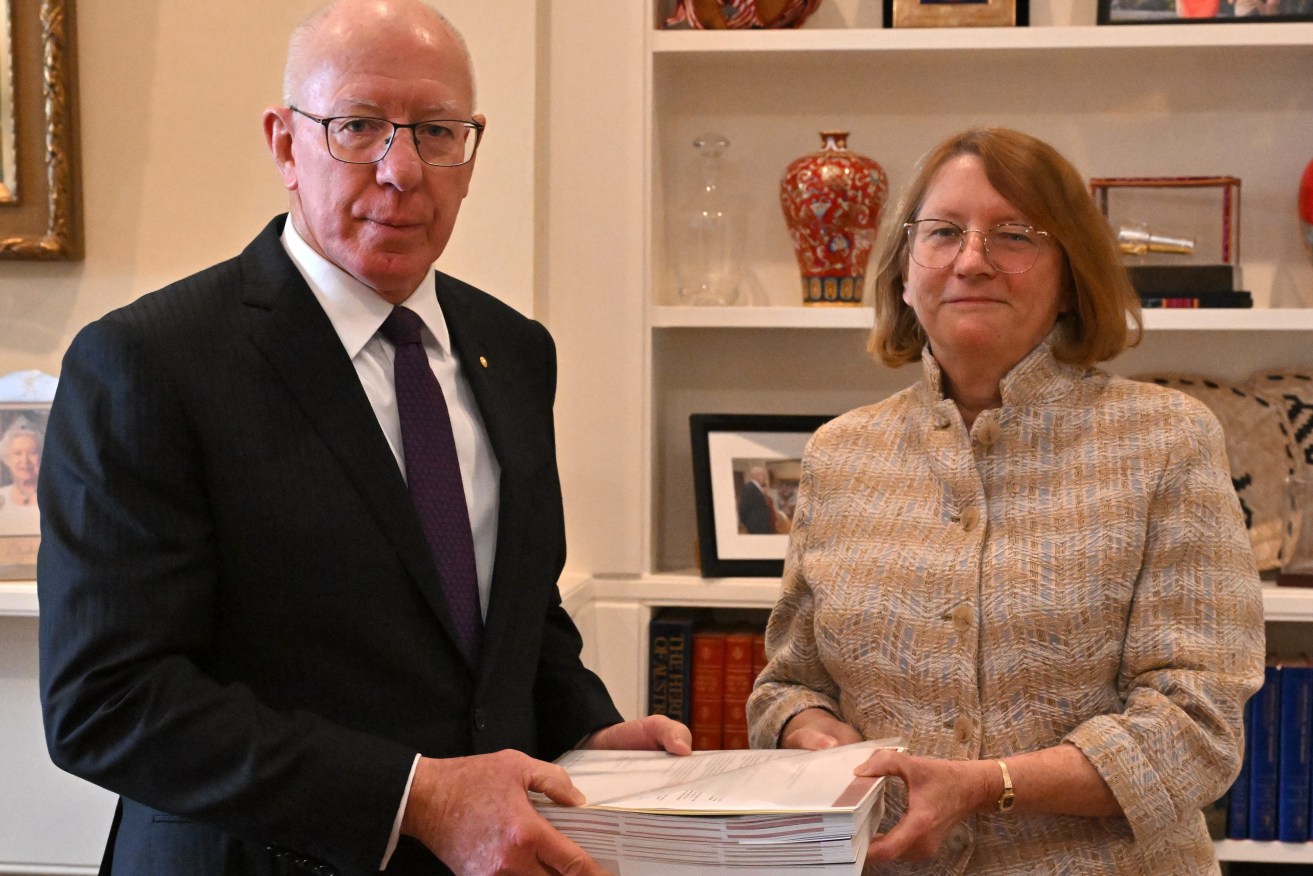
A question of ethics – and how more of it could have stopped Robodebt in its tracks
Last month, leading Australian law firm Gadens held a seminar where ethical issues, regarding Government lawyers, arising from the Robodebt Royal Commission were discussed in depth.

The Commissioner for the Royal Commission into the Robodebt Scheme Catherine Holmes delivers her report to the Governor General David Hurley at Government House in Canberra. (AAP Image/Mick Tsikas)
Angus Scott KC, senior counsel, and Renee Beery, counsel, assisting the Robodebt Royal Commission dove deep into the two main ethical issues that surrounded the Robodebt scheme, which related to Government legal practice.
Robodebt refers to the scheme introduced by the Australian Government in 2015 to recover purported overpayments of social security entitlements.
In working out repayments, the Department of Human Services compared the amount of employment income that has been reported to the ATO with the amount that a social security recipient had reported to the Department.
If there was a discrepancy, in many circumstances the Department would average the total amount (obtained by the ATO) over a period of time to acquire a notional fortnightly amount, which were in turn used to calculate the person’s social security entitlements, and any resulting overpayment, which was then characterised as debt.
In August 2022, The Robodebt Royal Commission was established to enquire into the establishment, design and implementation of the Robodebt scheme.
In July 2023, The Royal Commission findings report was published which found that “Robodebt was a crude and cruel mechanism, neither fair nor legal, and it made many people feel like criminals.”
Out of the findings two ethical issues relating to Government lawyers arose.
The first issue was the need for all lawyers including Government lawyers to be independent in providing legal advice to their clients.
The second surrounded the practice of Government agencies obtaining legal advice in draft and not being finalised.
In her presentation, Berry described Robodebt as one of the most compelling examples of the crucial importance of lawyers ethics and what can go wrong in the application of seemingly abstract concepts in practice.
“(There is a) direct link between the advice the Government had at the time, the actions that it takes in reliance on that advice and the impact it has on people and communities,” said Berry.
In 2014, The Department of Social Services received in-house legal advice that the proposed process for Robodebt was unlawful, the same advice was given in draft in 2018 that the income averaging process used under Robodebt was unlawful.
Despite this, the scheme continued until the end of 2019, which Berry said was “in part because of the issues arising with the legal ethics affecting Government law.”
Angus Scott KC gave examples and discussed in depth the recommendations made by the commissioner relating to the ethical issues of independence and advice provided in draft form.
“Hopefully we’ve taken some of these ethical issues out of the textbooks and into real life, and illustrated how these sorts of issues can involve human dimension.”
This Robodebt seminar was part of a series of legal education seminars that Gadens runs each year, for Government lawyers across the country at all levels – federal, state and local.
For more information on Gadens’ Government Lawyers Legal Update seminars, head here.















